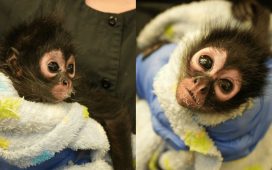A startling new investigation has uncovered toxic heavy metals lurking in some of America’s most trusted toothpaste brands, including those made for children.
Lead Safe Mama, a small business focused on lead-poisoning prevention, sent 51 toothpaste products to an independent lab for testing.
The lineup included household names like Crest, Colgate, Sensodyne, Orajel, Burt’s Bees, Tom’s of Maine, and Hello.
A staggering 90 percent tested positive for lead, 65 percent contained arsenic, 47 percent had mercury and 35 percent were found to have cadmium. Many products were found to have more than one of these toxins.
All four of these substances are known neurotoxins, capable of damaging brain cells and affecting cognitive development at certain levels.
Some research has linked prolonged exposure to these metals with learning disabilities and even autism. Beyond neurological effects, exposure to heavy metals has also been associated with cancer, kidney disease, birth defects, and cardiovascular dysfunction.
None of the tested products exceeded the Food and Drug Administration’s (FDA) limits for exposure to these toxins, though two did exceed the Environmental Protection Agency’s (EPA) limit, which is based on wastewater levels.
Still, the concern is especially troubling because these metals can easily enter the body not only through ingestion, but also through skin absorption or by being inhaled during brushing.
According to the Centers for Disease Control and Prevention (CDC), there is no known safe level of lead or mercury exposure, raising serious concerns about the long-term safety of everyday oral care products.
Only five of the tested toothpastes did not contain any heavy metals, including one Orajel product made for kids: Orajel Training Toothpaste.
But Lead Safe Mama founder Tamara Rubin called the widespread presence of these toxins in toothpaste ‘unconscionable, especially in 2025.’
‘What’s really interesting to me is that no one thought this was a concern,’ she told The Guardian.
Rubin said the contamination appears to stem from certain ingredients commonly used in toothpaste, such as hydroxyapatite, calcium carbonate and bentonite clay.
Hydroxyapatite, a mineral often derived from animal bones, is added to toothpaste for its potential to help teeth absorb calcium.
Calcium carbonate — a naturally occurring compound also used as a dietary supplement — is included for its ability to remove surface stains, while bentonite clay is used for its cleaning properties.
Notably, the toothpastes with the highest levels of contamination contained bentonite clay, which is known to harbor heavy metals.
Rubin also tested samples of hydroxyapatite and calcium carbonate, finding that both contained alarming levels of lead and other contaminants.

Multiple toothpastes that are made specifically for children were found to contain toxic heavy metals, including those made by popular brands such as Hello, Orajel and Tom’s of Maine
These ingredients tend to appear more frequently in natural or alternative toothpastes.
The product with the highest lead content was Primal Life Dirty Mouth Kids Tooth Powder, which exceeded the EPA exposure limits for both lead and arsenic.
VanMan’s Miracle Tooth Powder had the second highest lead concentration, but only exceeded the EPA limit for arsenic.
The EPA states that exposure should not exceed 5,000 parts per billion (ppb) for both lead and arsenic, 200 ppb for mercury and 1,000 ppb for cadmium.
But the FDA’s current lead limit for fluoride-free toothpastes is 10,000 ppb, and 20,000 ppb for fluoride toothpastes.
Lead Safe Mama also tested some of the most popular toothpaste brands in the US. The chart above shows the products made by these brands that contained the highest levels of lead.
Three of these products — Orajel Kids Anticavity Toothpaste (Paw Patrol), Tom’s of Maine Kid’s Natural Toothpaste and Hello Fluoride Free Toothpaste — are made specifically for children.
Research has shown that the adverse health effects of heavy metals on children are much higher than in adults.
The federal Baby Food Safety Act of 2024, which is still in the early stages of the legislative process, aims to limit lead in kids’ food to 10 ppb. California’s limit on lead in baby food is even more strict: six ppb.
While these recommended levels may not be directly transferable to toothpaste, most of the dental products Lead Safe Mama tested exceeded them.
DailyMail.com has reached out to the following brands or their parent companies for comment: Crest, Colgate, Orajel, Sensodyne, Tom’s of Maine, Burt’s Bees, Hello, Primal Life and VanMan.
In an emailed statement, a Crest representative said: ‘All our products are safe to use and comply with all regulatory requirements and standards including those set by US Pharmacopeia (USP) and the FDA. We will not market a product until we have thoroughly evaluated its safety.
‘We are aware of the report/testing published on the website Lead Safe Mama and are interested to learn more about the testing methodology as well as the findings.’
None of the other contacted brands immediately responded to request for comment.
Some companies whose products were named in this report hit back, often claiming that the levels of heavy metal contamination Lead Safe Mama found are not concerning, or that lead is found in trace levels throughout the environment and is therefore impossible to avoid.
Others sent Rubin cease and desist letters, which she ignored but posted on her blog.
But so far, none of the companies have said they will take action to remove heavy metals from their products.










